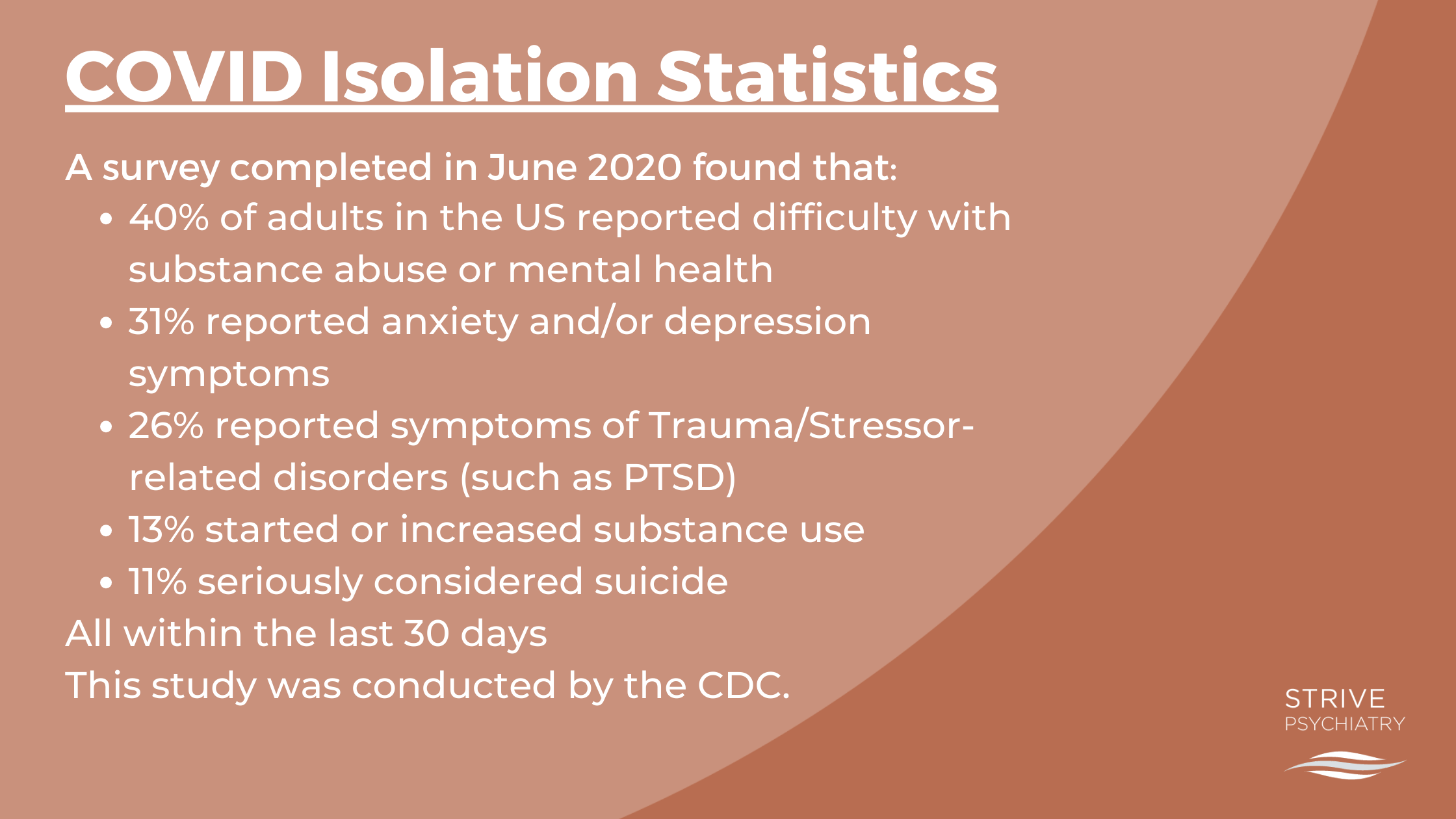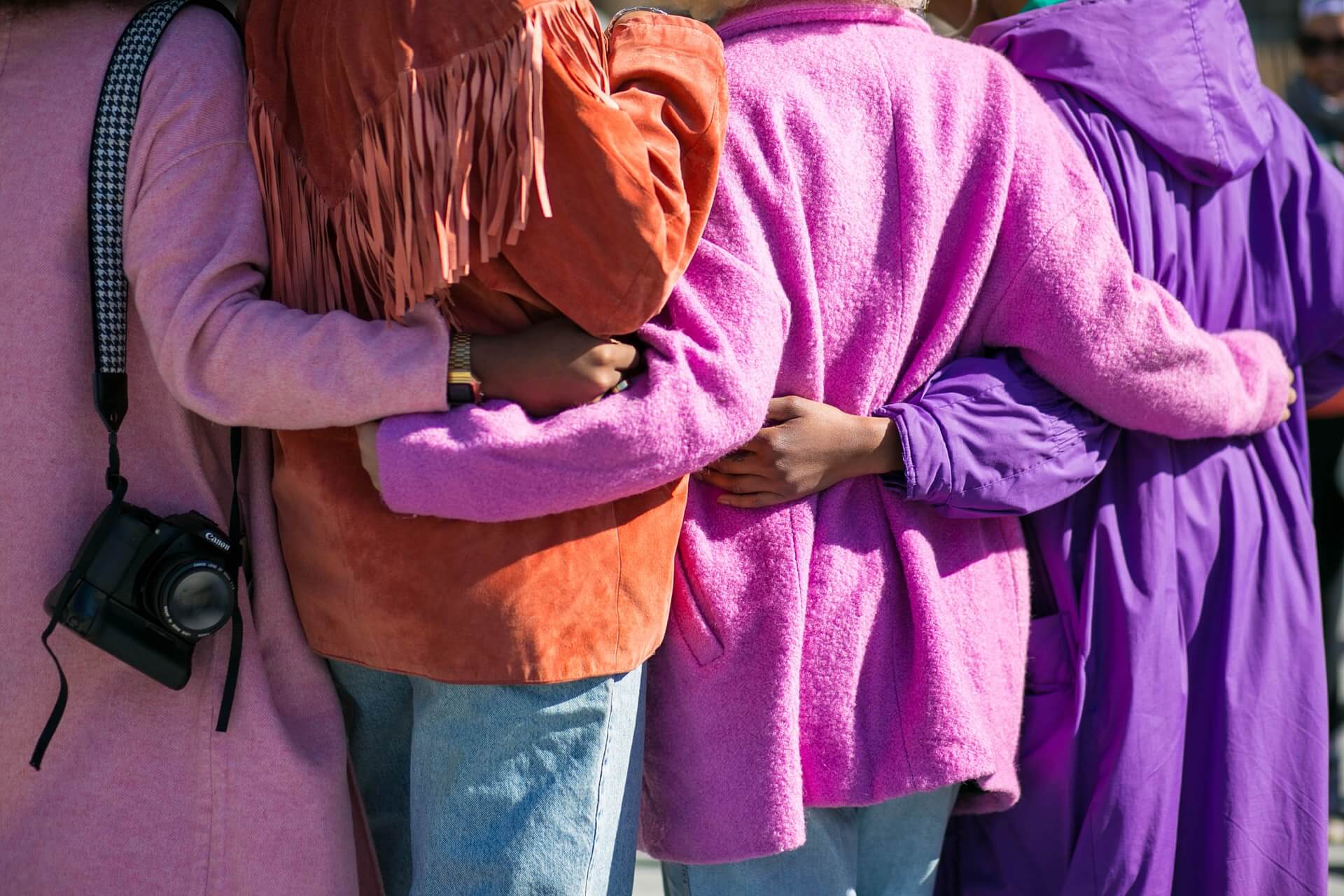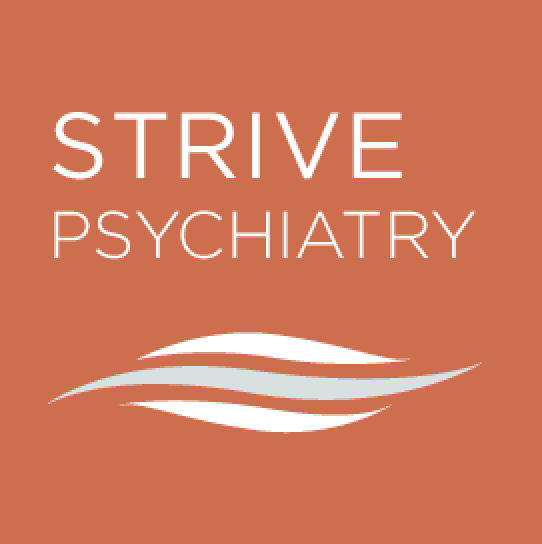Withdrawing from social engagements is often a sign of a mental condition, but studies show that it is also a cause. During the COVID-19 pandemic, a mix of stress and social isolation fueled a massive mental health crisis that is still unfolding today. The need for quality mental health care has never been greater. While experts emphasize the importance of a healthy and proactive support system, the pandemic limited the amount of in-person access to friends and family for many. This resulted in feelings of crushing loneliness and disconnection from loved ones. Left unchecked, this can cause a negative dip in an individual’s mental health. How exactly do social relationships relate to mental illnesses? How did social isolation play role in the current mental health crisis? This blog post aims to address these questions.
Before we delve into this blog post, we want to acknowledge that every person has experienced something different during this pandemic. If you need mental health support or know someone that does, please reach out to us. This article’s main goal is to emphasize the importance of supporting each other and taking care of ourselves. If we at Strive Psychiatry can assist you on this journey, please don’t hesitate to reach out.
A Look at the Numbers

Further information from the CDC about this study can be found here.
Mental health professionals have long known that there is a clear connection between social connectedness, social isolation, and mental health. Though each person may need varying levels of social engagement, the importance of having that involvement is crucial. (Note: while isolation played a part in the increase of mental illness during the pandemic, stress, food scarcity, and health decline were also contributing factors. This means that this particular study has its limitations, but it demonstrates that the pandemic took a toll on many people’s mental health.)
Loneliness and Illness
Digging a little deeper into the data reveals more of the effects of isolation. In a report by The National Academies of Sciences, Engineering, and Medicine, researchers found that individuals with poor social connections were more likely to develop:
- Heart problems
- Dementia (and other memory issues)
- Depression
- Anxiety
- Upper respiratory problems (such as colds.)
- Diabetes
It is evident, especially in those above 50 (the age demographic on which this study is based,) that loneliness and lack of social connection increase the likelihood of developing a mental illness. This study even showed that these factors also have a physical component, further showing that mental and physical health are closely tied. To read more on this study, click here.
“How do I help?”
With such a clear connection between loneliness, social isolation, and mental health it’s time to take action. While it may be difficult to connect with loved ones right now, virtual connection through video or phone calls, emails, or text can help ease the loneliness and feelings of isolation. It is important to not only offer support to friends and family but also to take care of yourself. Here is a quick list of ideas to help inspire you to support yourself and others.
Taking care of you
- Practice regular self-care (tune into our Instagram or Facebook for regular self-care ideas and practices.)
- Drink plenty of water
- Add some exercise to your routine
- Speak kindly to yourself
- Notice your emotional experience throughout the day
- Identify a person you can reach out to for help – this could be a trusted friend, family member, or mental health professional.
Taking Care of Others
- Reach out to your friends if they seem down
- Set a time to call a loved one and stick to it (It may be helpful to set an alarm or reminder to check in on someone.)
- Write a thoughtful letter and mail it to a family member
- Offer to drive a friend to a mental health appointment
- Bring dinner to a new mom in your life
- Volunteer some time at a care home near you
It is easy to burn out when constantly giving time, energy, money, or mental space to others. Be sure that you set clear boundaries and balance the time spent taking care of others with the time spent taking care of yourself. Here is a helpful guide to setting and maintaining your boundaries.
We are in this Together
With such a clear connection between social isolation and mental health, it is important to build a healthy support system for yourself and be a part of one for others. Though you may not see it every time, the impact you have on others can make a big difference. It is okay to start small if one or two friends are a good balance for you. Don’t let social isolation from the pandemic take a toll on your mental health or your connection to friends and family. Give someone a call every now and then, balance in some self-care time, and know that we are all in this together.


